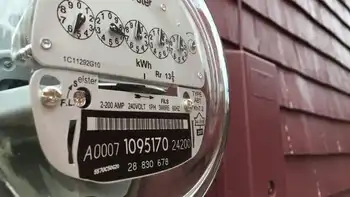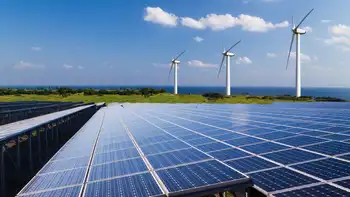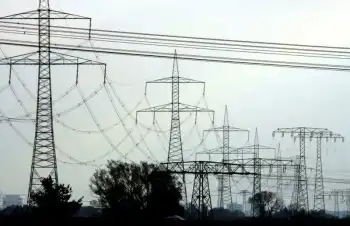Making cheese with energy smart system
PRINCE EDWARD COUNTY, ONTARIO - The wind turbine is the first clue. The eight solar panels on the roof are another. A visitor to Fifth Town Artisan Cheese Co. in Prince Edward County, Ont., quickly realizes this is no ordinary dairy.
Fifth Town, which produces handmade goat and sheep cheeses, is North America's first Platinum LEED-certified dairy.
Creating a sustainable dairy that meets third-party benchmarks for a high-performance green building doesn't come cheap. Fifth Town's sleek wood and concrete building cost $2-million in 2008. About $400,000 went toward eco-friendly elements such as Forest Stewardship Council-certified wood, non-toxic paints and low-flow faucets.
But Petra Cooper, the dairy's CEO and founder, says her green investment is paying off in a myriad of ways, proving sustainability not only helps the planet, but can also benefit a business strategically.
Being green “put Fifth Town on the map, faster than might have happened otherwise,” she says.
The dairy, which made its first cheeses in July of 2008, doesn't have a big advertising budget. The LEED certification peaked reporters' curiosity, which resulted in Fifth Town being featured in magazine and newspaper articles.
“If I had to buy that media attention, I couldn't have afforded to,” says Ms. Cooper, 48, a former publishing executive with an MBA from the University of Toronto.
Before launching Fifth Town, Ms. Cooper studied cheese-making for four years. So far, Fifth Town cheeses have won nearly 30 awards including medals at the Royal Agricultural Winter Fair, the British Empire Cheese Competition and the American Cheese Society.
The media coverage and awards have drawn members of the public to the eco-friendly building. In the summer, Fifth Town runs free green tours. Last summer nearly 4,000 visitors a week learned how sustainability and cheese-making complement each other like feta and olives. At the end of the tour, visitors stop by the dairy's store where the cash is busy ringing up sales.
Running a sustainable business also helped Fifth Town attract and retain its 14 employees. The company didn't need to advertise to recruit staff. “They all came to us,” Ms. Cooper says. And so far, none have left.
While building a green dairy required a lot of capital upfront, energy bills for the 446-square-metre building are low thanks to heat and light sensors. The dairy is “a robot underneath the walls,” Ms. Cooper says. “It micro-manages energy everywhere in the building.”
For aging cheese, conventional dairies use energy-hungry above-ground fridges, which require fog machines. Fifth Town relies on three man-made cement caves. The caves are naturally cool and humid, don't need fog machines and consume far less energy.
While the building isn't off the grid, some of its energy comes from on-site renewable sources. A geothermal system, consisting of 1,600 metres of coil 1.8 metres beneath the dairy, heats and cools the main building and the caves. Power also comes from the wind turbine and solar panels.
All of this means Fifth Town's energy bills are significantly lower than a typical dairy's. The windmill alone saves the dairy up to $200 a month. As an added bonus, Ontario's Hydro One pays the dairy about $300 a month for solar energy fed into the grid.
Depending on the type of cheese being made, for every 7,000 litres of milk the dairy uses, it must dispose of up to 6,300 litres of whey, a by-product of cheese making that consists of water, ash and proteins. Some dairies pay to truck whey elsewhere – a costly, on-going expense.
Fifth Town has a bio-wetland system that treats whey, transforming it into near potable water. The three-pond system cost $75,000, but it, and the dairy's other green features, should pay for themselves within seven to 10 years, Ms. Cooper says.
“Over time it will save us lots of money.”
At Fifth Town, it's not just the building that is sustainable. The sheep and goat milk in the cheese come from nearby environmentally friendly farms. Packaging for the cheese is either biodegradable or recyclable, with labels printed on post-consumer paper.
While these green elements are good for the earth, they're also more expensive. As a result, Fifth Town's cheeses are a bit pricier. Eco-conscious consumers understand it costs more to create a sustainable product, Ms. Cooper says. “It's like a hybrid car. It's a more expensive car but people buy it. That's a philosophical choice people make.”
Demand for the cheese, which is sold throughout Ontario at gourmet grocery stores and cheese boutiques, is growing. In response, Fifth Town plans to expand the dairy. Getting a loan for the expansion was easier thanks to the dairy's LEED certification, Ms. Cooper says. “These days you can't get money for things unless you can prove you aren't going to hurt the environment.”
With all the benefits of running a sustainable business, from media attention to easier access to credit, Ms. Cooper recommends going green to other entrepreneurs. Since Al Gore's An Inconvenient Truth (2006), lenders and consumers have become more focused on environmental issues. As a business owner, “I think it would be hard not to pay attention.”
She cautions that a business won't thrive just because it's environmentally friendly. With Fifth Town, “the cheese has to be good. Nobody would buy it just because it's green.”
For consumers, it's a bonus Fifth Town is eco-friendly, Ms. Cooper says. “People like the cheese – and then on top of that they can feel good about buying it. They can know they are supporting some innovative uses of green technology.”
Related News

Class-action lawsuit: Hydro-Québec overcharged customers up to $1.2B
MONTREAL - A group representing Hydro-Québec customers has filed a motion for a class-action lawsuit against the public utility, alleging it overcharged customers over a five-year period.
Freddy Molima, one of the representatives of the Coalition Peuple allumé, accuses Hydro-Québec of "abusing its monopoly."
The motion, which was filed in Quebec Superior Court, claims Hydro-Québec customers paid more than they should have for electricity between 2008 and 2013, to the tune of nearly $1.2 billion.
The coalition has so far recruited nearly 40,000 participants online as part of its plan to sue the public utility.
A lawyer representing the group said Quebec's energy board, the Régie de l'énergie, also recently approved Hydro-Québec…




